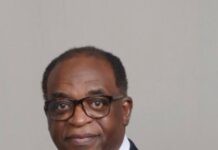For Boko Haram, targeting Christians for killing has always been a political act aimed at creating divisions within the enemy, which they define to be the secular Nigerian State. Deepening the divide between Christians and Muslins and amplifying the hate between them through depicting brutal killings and beheadings in video clips they distribute widely. The abduction of Christian girls for enslavement, sexual assault or forced conversion to Islam is part of the same tactic. The strategic objective is to promote a civil war between Christians and Muslims that would create easier conditions for them to build and grow the Caliphate they have always dreamed about.
In 2011, Boko Haram started carrying out high-profile operations with national and international implications. On 16 June 2011, they carried out what might have been the first suicide bombing in the country killing six people at the Headquarters the Nigerian police. Then on 26th August 2011, they carried out the suicide attack on the United Nations headquarters in Abuja killing 21 persons. After that, they shifted their focus on attacking Christians and security forces. On November 4, 2011, they attacked churches in Damaturu killing over 100 people. This continued on Christmas Day of 2011 with numerous attacks on Christmas worshipers in Borno and Yobe State. Boko Haram’s operations during the period of late 2011 to mid 2012 continued with a series of attacks on churches in Jos, Abuja and Suleija.
Attacks on Christian targets are planned and carried out by Boko Haram, its splinter groups and other jihadi groups as boundary-creating operations to build unity within the Muslim community and divide the said community from outsiders – Christians, Jews, Yazidi and so on. Currently, the Islamic State in West Africa Province (ISWAP) is focused on attacking Christians in Nigeria, Cameroon and Burkina Faso and is making incursions into Cote d’Ivoire, Benin and other coastal countries in West Africa. They see targeting Christians as a response to the internal conflicts generated when they attack and kill Muslims for not being part of their movement. It is important to recall that during the Goodluck Jonathan presidency, they presented the war as combatting security forces that are tools of the Christian-dominated government in Abuja. They subsequently shifted their ambition to the establishment of a Caliphate that is not ruled by the Christian Jonathan Administration.
They have now come full circle and resumed explicit targeting of Christians. Over the past two months, Boko Haram and its splinter groups have released at least four video clips of the killing of Christians. Their message in the clips has been consistent – they will continue to specifically target Christians and kill them. This chilling message is causing a lot of agitation within the Christian community as they know it’s no empty threat. Ropvil Daciya Dalep, a member of the Church of Christ in Nations (COCIN) was kidnapped on 9th January on the Damaturu-Maiduguri Highway while returning to school at the University of Maiduguri in Borno state and subsequently murdered. The political message in the clip was clear as they explained that: “This is one of the Christians from Plateau state… We want to tell all Christians that we have not forgotten what you did to our parents and grandparents. Christians all over the world must know that we will never forget their atrocities against us, until we avenge the bloodshed visited on us.” After saying this, the boy was shot dead. Another case as an 18-year-old seminarian, Michael Nnadi, kidnapped along with three other seminarians on 8th January 2020. His corpse was found on 1st February. The three other seminarians — Pius Kanwai, Peter Umenukor and Stephen Amos — were released in late January maybe to tell the terrible story of what happened.
Another terrible recent story is that of Mrs, Philip Ataga, abducted, killed and her husband, a medical doctor was told where to go and pick her corpse while their children are still with the terrorists. After killing her, the bandits are still reportedly making a demand of N20 million ransom for the release of the children. All these scripted activities and the narratives created around them are produced to cause the maximum pain and anguish and it is important that we learn how to respond to them. It’s not the work of Muslims in general, its targeted activity by a small band of terrorists.
This week, President Buhari published an opinion speech on the issue mourning the killing of pastor Lawan Andimi by Boko Haram for his refusal to denounce his Christian faith. The President explained that Pastor Andimi’s ministry was located only 60 miles from the town of Chibok, from where in 2014 the world witnessed the shocking kidnapping of 267 school girls. He argued that the abduction of this priest might be viewed as evidence the terrorists are fully functional, and undefeated. He claimed that is not so as since 2015: “107 of the Chibok girls have been freed. Today we seek the others. Boko Haram are no longer one, unified threat, but fractured into several rivals. These splinters are themselves degraded: reduced to criminal acts which—nonetheless no less cruel—target smaller and smaller numbers of the innocent.” This might be true to some extent but it is not convincing as these things continue to happen so for people the threat is real and alive. The President also made the claim that 90 per cent of all Boko Haram’s victims have been Muslims. The problem is that we have no exact statistics on the matter but it is indeed true that both Christians and Muslims are being killed by the insurgents.
I agree with the President however that: “the terrorists have targeted the vulnerable, the religious, the non-religious, the young, and the old without discrimination. And at this point, when they are fractured, we cannot allow them to divide good Christians and good Muslims from those things that bind us all in the sight of God: faith, family, forgiveness, fidelity, and friendship to each other.” The terrorists categorise all Christians as legitimate targets for murder. We the non-terrorists cannot do the same and target all of the other. We must enhance our capacity to understand that the terrorists are murdering and manipulating at the same time and both sets of actions must be combatted.
The President makes the point that there is much between Christianity and Islam that are close: “Each one must give as he has purposed in his heart, not grudgingly or under compulsion” (2 Cor. 9:7), while the Quran states: “There is no compulsion in religion” (2:256). Similarly, the Bible states: “For if anyone is a hearer of the Word and not a doer, he is like a man who looks intently at his natural face in a mirror” (James 1:23). The Quran concurs: “Those who believe and do good works, theirs will be forgiveness and a great reward” (35:7). He therefore called on Nigeria’s faith leaders, and Nigerians everywhere, to take these words of concord, and the many more that exist, to their hearts and their deeds. When people know that are being targeted and killed for their belief, it does not help much to tell them that they are also being manipulated because they know that their victimhood is linked to their faith. To understand the manipulation component, they must see more concerted State action directed at destroying the terrorists. It is the success of the war on terror that will explain to people the content of the manipulation. This country has allowed terrorism to fester for over a decade and to counter the manipulative component of jihadi propaganda, it is required that more success in the war on terror must be achieved by the State and its security agencies.


